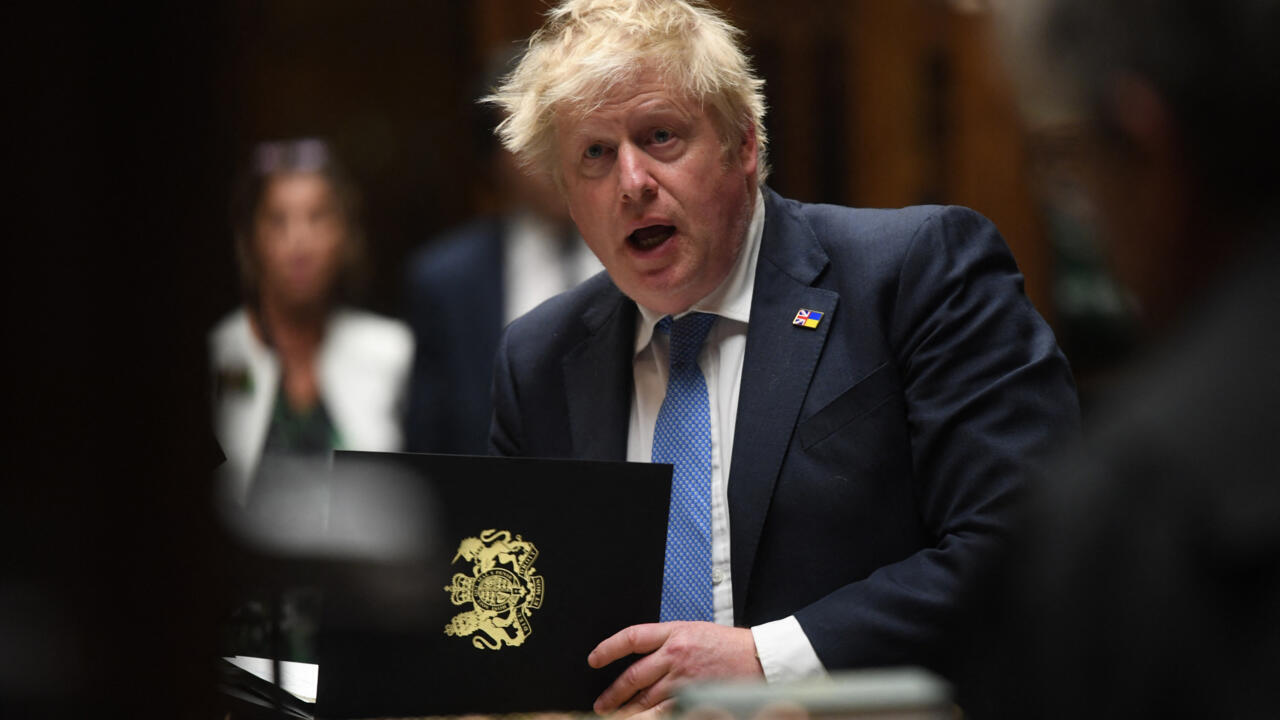British MPs decided on Thursday, April 21, to open an investigation to determine whether British Prime Minister Boris Johnson knowingly misled Parliament in his explanations in the "partygate" affair.
By consensus, without even formally voting, they decided to seize the "Privileges Committee", which will in turn investigate this scandal around the parties organized in Downing Street despite the successive confinements linked to the Covid-19 pandemic, in a procedure likely to eventually force Boris Johnson to resign.
According to the rules governing the functioning of British institutions, knowingly misleading Parliament is an offense which justifies the resignation of its author.
British Prime Minister Boris Johnson apologized "unreservedly" to MPs on Tuesday after being fined for breaching anti-Covid restrictions in June 2020.
"I take this opportunity, on the first day of the session, to renew my sincere apologies to the House," said Boris Johnson.
The Tory leader was fined - £50 (€60) according to the press - a week ago for a surprise birthday on his 56th birthday.
An event of "less than 10 minutes" according to him, which also earned his finance minister, Rishi Sunak, and his wife Carrie to be sanctioned.
Repeated apologies and refusal to resign
“As soon as I received the notification (of the fine, NDRL), I admitted the pain and the anger and said that people had the right to expect better from their Prime Minister” , he added, explaining once again that he had not realized at the time of the facts that he was breaking the rules.
"It did not occur to me then that a gathering in the 'Cabinet Room' just before a crucial Covid strategy meeting could represent a breach of the rules. I repeat that it was my fault and I apologize for this, without reservations."
After the announcement of this sanction, Boris Johnson again apologized and again ruled out resigning.
A time on an ejection seat, "BoJo" seems to have actually benefited from the war in Ukraine and his role on the front line of Western sanctions against Russia, with many members of his own camp deeming it inappropriate to try to oust him from Downing Street in such a context.
Nevertheless, discontent remains tenacious, including in the ranks of the majority, as evidenced by the resignation of the Under-Secretary of State for Justice, David Wolfson, who invoked "the extent, context and nature" of the offenses committed under what is now called "partygate".
"Liar"
London police, who have already imposed more than 50 fines, are continuing their investigations.
And once the police investigation is complete, Boris Johnson will also have to deal with the conclusions of senior civil servant Sue Gray, who has already crippled in a pre-report of "errors of leadership and judgment".
He will also have to face the verdict of the polls in local elections on May 5, an election that will have test value.
According to the press, the conservative leader risks new fines for his presence at at least five other festive events presented as more embarrassing for him.
After new details emerged in The Sunday Times, to which a source described a Boris Johnson serving drinks, toasting and making a speech for the communications chief's departure on November 13, 2020, Downing Street had to deny the leading role attributed to the head of government in the turn of events that day.
According to a study published on Monday, 72% of respondents have a negative assessment of the Prime Minister, the term recurring most often being that of "liar".
According to pollster James Johnson, who carried out the study, the "partygate" prevails over Ukraine in opinion.
"The furor hasn't receded," he tweeted, "lots of the negative comments are from people who previously liked him but have changed their minds."
With AFP
The summary of the
France 24 week invites you to come back to the news that marked the week
I subscribe
Take international news everywhere with you!
Download the France 24 app
google-play-badge_EN

